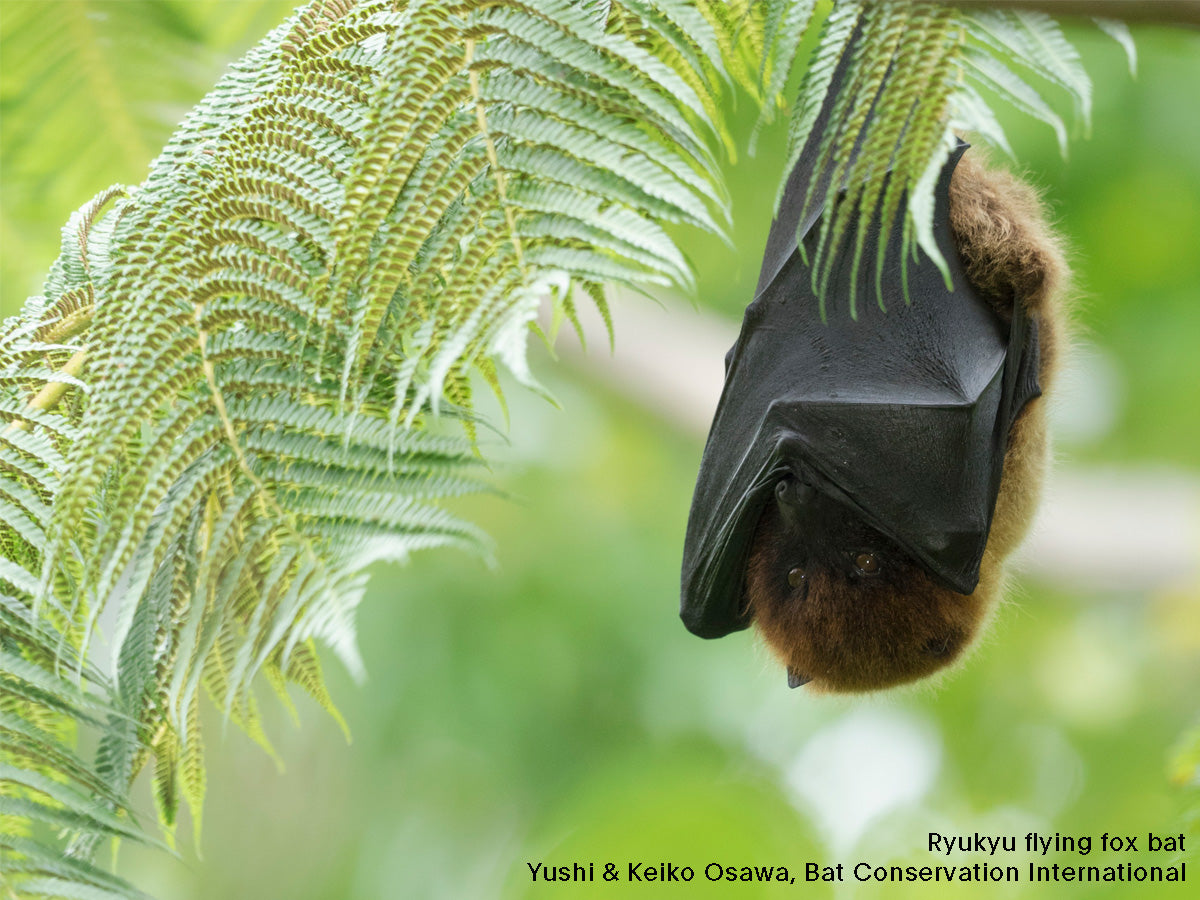Our Earth Month goals are to support, educate, and inspire. We commit to making a financial contribution to an ecological nonprofit organization each year during Earth Month. Throughout April, our team shares information about the chosen organization on our social media and newsletters and vows to donate a portion of sales from a special colorway to the organization. In the past few years, Leaf Shave has supported organizations such as Pacific Whale Foundation, Pollinator Partnership, and The Coral Restoration Foundation.
About Bat Conservation International
We are working with Bat Conservation International (BCI) this Earth Month as our selected nonprofit partner. BCI is science-based, passionate, and result-focused with the mission to conserve bats and their ecosystems. They work globally to protect bats and their environments, restore their landscapes, and prevent extinctions.
We chose to support this organization because bats need our help! When learning about our planet's pollinators through our support of the Pollinator Partnership, it was a fun surprise that bats are pollinators. It is also a perfect fit after learning that fruit-eating bats love figs, as this Earth Month our special finish is FIG!

Lesser Long-nosed Bat
Bruce D. Taubert, Bat Conservation International
Why Do Bats Need Our Help?
Bat populations are falling, and many bat species are on the brink of extinction. BCI works to research these bat populations, form solutions to stabilize and protect valuable colonies, and restore their habitats. The main threat of bat extinction is due to human activity—climate change, hunting, wind-turbine energies, and destruction of natural habitats. (“Bats 101,” n.d.)
Let’s Talk About Bats!
These mammals safeguard the global ecosystem. Bats have been around for over 50 million years, and they are a big reason some plants we know can grow and thrive. (“Bats 101,” n.d.) They eat pesty insects, and in turn, plants need less pesticides and farmers save about $20 billion annually! Nectar-drinking bats pollinate plants like giant cacti and agave, allowing their species to thrive. Fruit-eating bats drop seeds, spreading species of plants to new places, and encouraging the regrowth of forests.
Peters' Tent-making Bat (Uroderma bilobatum)
Christian Ziegler/Minden Pictures, Bat Conservation International
How BCI Has Made An Impact on Bat Conservation
Hundreds of species of bats around the world are endangered. (“Bats 101,” n.d.) BCI implements endangered species interventions to protect species of bats that are close to extinction. To do this, they investigate each specific highly endangered bat species' at their native location, study their population, landscapes, roosting location, and diet, and then work to protect their landscapes and spread awareness. They work alongside local landowners, governments, and partner organizations.
A large part of BCI’s conservation efforts is protecting and restoring bat habitats and landscapes, as it is a huge threat to bat populations when these lands are affected. BCI manages and protects Bracken Cave Preserve—home to more than 20 million Mexican free-tailed bats, the largest bat colony in the world. Additionally, they are implementing bat conservation on 258 million acres across the US, protecting and assessing abandoned mines for bat roosting, and restoring agave for pollinating bats.
BCI researches ways to help bats survive White-nose syndrome, a common deadly fungal disease, and develops tools to minimize bat collisions with wind turbines, especially through their involvement with the Bats and Wind Energy Cooperative.
Furthermore, BCI steadily supports, recognizes, and awards students who take action to pursue bat conservation through research. BCI partners with Conservation Metrics, Inc., North American Bat Monitoring Program, State Agency Biologists, and U.S. Federal Agency Biologists, working to contribute bat population data, unite partners to address bat threads, and overall improve the conservation of bats.
To involve the community, BCI currently offers a Bat Walk Program where community members can learn about local bats through nature walks.

Bracken Cave Preserve
Jonathan Alonzo, Bat Conservation International
How To Get Involved
It’s important to recognize that we need bats—and they need us! Without bats, so many of our everyday plants and food would not exist. The many threats they face can be minimized with your help. To support Bat Conservation International, shop special edition Fig razors, and $2 from every Fig razor sold will be donated to BCI! Explore BCI’s website to find other ways to get involved in addition to volunteering and spreading awareness.

Thank you for your support this Earth Month!
Source:
Bat Conservation International. (2024, March 15). Leafshave2024. Retrieved from www.batcon.org/leafshave2024






